My Favorite Books From 2015
Best of the year lists are as much of a testament to what was missed as to what was actually experienced. For every [insert media format of your choice] that a person heaps praise upon there is an even larger heap of [that same media format] that the aforementioned individual had meant to read/watch/listen to but which the person missed for whatever reason. Thus, such lists are never definitive but always feature the embedded caveat in their title stating “best of the year…of the things I actually got around to this year.” With the further problem, that oft goes unsaid, being that in any given year there is always a chance that the best something a person read/watched/listened to that year might actually have come out several years, decades, or centuries earlier. And this is to say nothing of the broader question as to how one truly gauges what the “best” things really were. Using the term “best” just works to give things a more authoritative connotation than what one gets by using the word “favorite.”
All of which is to provide an unnecessarily lengthy introduction to the following list. These were the books I read in 2015 which had been published in 2015 and which made the biggest impression on me. There are many books I meant to read in 2015 that I did not get around to reading, and there were many excellent books I read in 2015 that were not actually published in 2015. My metric for determining which books belong on this list is actually fairly simple: these were the books I found myself constantly recommending to people and these were the books I kept mulling over long after I had finished reading them. Please note: these books are not listed in any type of hierarchical order. Also note: this is a list of non-fiction books. Also, also note: as readers of this website probably know – I am primarily interested in the social/environmental/ethical ramifications of technology, and so the books on this list tend to gravitate around those topics.
Without any further ado…
A book that makes visible the technological infrastructure that goes unseen
The Undersea Network by Nicole Starosielski (Duke University Press)
Amidst the brouhaha about the latest smart phone, or the new social media platform sweeping the Internet, it can be easy to ignore the question: what makes the Internet really work? 2015 was a year filled with important international events, how did that information flow so seamlessly around the globe? Nicole Starosielski’s book, The Undersea Network, takes the often ethereal discussions about the Internet and grounds them in – well – the ground. Or to be more specific: under the sea. The Undersea Network is a history of cables about which most people think rather little, despite the fact that the bulk of transoceanic Internet traffic is carried through these cables. Frankly, an equally fair title for the book would have been “The Unseen Network.” One of the things this book demonstrates impressively is the way that the latest Internet connected devices are still reliant on some rather old, and defiantly material, technology. In the book, Starosielski digs into the history of these cables, showing the ways in which the ways the cables were laid was intertwined with the history of militarism, imperialism as well as colonialism and demonstrates the ways in which these legacies are still embedded in this essential infrastructure. Along the way Starosielski keeps the narrative of her book thoroughly engaging by drawing upon the stories of those who were involved in creating and maintaining this world of deep sea cables as she recounts her trips to urban and tropical locations in search of the spots where the cables surface. Starosielski writes: “creating new cultural narratives for undersea cables is critical to an informed public participation with the transnational Internet, especially in a privatized cable system where…public perception can affect the development of new networks” (68) – and The Undersea Network itself provides a powerful new narrative, simply by making it clear how critical undersea cables are to the functioning of the Internet. This book will pull your head out of the clouds (or out of the cloud) and remind you that the Internet is not nearly as immaterial as some claim.
A book that challenges the way technological speed and acceleration are discussed
Pressed for Time by Judy Wajcman (University of Chicago Press)
An oft repeated refrain, in regards to contemporary technology, is some variation on the theme of “everything is moving so quickly and things are only getting faster.” It is a common sentiment that treats speed and technology as being closely intertwined, and often treats new technologies as if they exist in an odd space wherein they are able to continually accelerate. Judy Wajcman’s book Pressed for Time reorients these questions about technology and speed by insisting that these need to take into account the broader social, political and economic world in which these technologies are used (and from which they emerge). Many of the arguments around the benefits of newer (supposedly faster) technologies have emphasized the way in which these devices will save time for their users, but Wajcman raises the question as to why then people feel so rushed and harried? It seems that Internet connected devices let us do so much faster…and yet we never have enough time. Building upon the “social-shaping” approach to technology (which she helped pioneer), Wajcman provides an analysis of contemporary technological society that remains hopeful of the potential of technology even as it observes the way in which new technologies can simply shore up the status quo, as she notes: “rapid technological change can actually be conservative, maintaining or solidifying existing social arrangements” (180). Along the way, Wajcman deftly questions much of the ad-copy wisdom surrounding contemporary technology arguing that the things which are meant to save time often fail to do so, while pondering to what use the time saved is actually put (mainly puttering about online or watching television). Pressed for Time is an engaging read, one that emphasizes that we cannot act as though our technology exists in a separate sphere from our society. It is one of the rare books wherein the author manages to praise and critique technology without coming across as simply being a guilty technophile. (Note: I wrote a full review of this book for the website Boundary 2)
The book that everybody was talking about (which few people actually read, but which is really worth reading [really])
Laudato Si’ – Encyclical on Climate Change and Inequality by Pope Francis (Melville House)
2015 was a great year for despair. Especially in the latter months of the year as fear mongering and xenophobia became mainstays in popular and political discourse. Some may point to the agreement reached at the end of the Paris Climate Talks as a reason for measured hopefulness, but many will be just as quick to scoff at what came out of those talks as too little, too late. And yet if one wants to think of the moment in 2015 where there was an odd glimmer of hope, one could convincingly argue that it occurred when Pope Francis released Laudato Si’ also known as the Encyclical on Climate Change and Inequality (the release of which more or less coincided with his tour of many parts of the world). Though it was a document published by the head of a religious body Laudato Si’ seemed to reinvigorate the discussions around climate change in ways that did not strictly involve the faithful. Perhaps this was because the Encyclical was not actually a dense religious text, and though it certainly featured mentions of God and the bible, the book was at its core an impassioned ethical argument for taking climate change and inequality seriously – arguments that Pope Francis made by unflinchingly confronting the current religions of our day: the worship of money and the worship of technology. Laudato Si’ was a text that stared defiantly at the dreadful future towards which the world is advancing, and maintained the composure to state, “Humanity still has the ability to work together in building our common home” (10). There are certainly issues to take with Laudato Si’, but there are few books I found myself thinking about as much this year as this one authored by Pope Francis. What was particularly interesting about this text was the way in which it emphasized climate change as an ethical challenge while pointing out the aspects of contemporary society which had anesthetized many people against such arguments. Furthemore, this may have been the most vigorous critique of technology I read all year – and more importantly it created a space where that critique could be discussed once more. (Note: I wrote a lengthy piece about the Encylical when it first came out)
A book that reminds you that the Internet is not the only technology activists can use (and yes, this book came out at the end of 2014, but I’m putting it on this list anyways)
Low-Power to the People by Christina Dunbar-Hester (MIT Press)
Activism and technology are intertwined in interesting ways. In our era of “hashtag activism,” statements like “we’re from the Internet, we’re here to help,” and footage of police violence filmed on smart phones going viral – the Internet (and Internet connected devices) has been seized upon as essential tools by many activists. And yet, a question that uncomfortably lingers in the background is whether the activists are using the technology or whether the activists are being used by the technology (used by the companies that own and profit from the use of the aforementioned technology [to put it more precisely]). Christina Dunbar-Hester’s Low-Power to the People provides a fascinating look at the interplay between technology and activism – and what makes her book such an essential read for those interested in the topic is that the technology she is discussing is not the Internet. Instead, Dunbar-Hester’s book is about radio and a group of activists (the Prometheus Radio Project), who in looking for a technology that synced with their values honed in on low power FM station – transmitters just strong enough to reach a few square miles. Low-Power to the People is about activists going into communities not to lead protests, fill social media with memes, or engage in computer hacking, but to construct actual radio stations which are then turned over to members of that community. What the activism explored in Dunbar-Hester’s book shows is a different way of exploring the liberating potential of technology – and in highlighting the work of these radio activists Low-Power to the People raises the question of just how liberating some of the online activism may really be. These are issues openly raised in the book, including by many of the radio activists who “resisted what they perceived to be unbridled and uncritical enthusiasm for what digital utopianists claimed to be the inherently emancipatory properties of computers and the Internet” (192). Low-Power to the People is an interesting look at the world of radio activism, but the reason the book is so extraordinary has to do with the way it reframes the discussion around activism and technology. There are numerous books devoted to online activism, social protests that used social media, and hacker groups – Low-Power to the People presents a starkly different picture of activists and technology. While reminding the reader that there’s a lot more to technology than the Internet.
A pessimistic book that left me feeling strangely optimistic
After Nature by Jebediah Purdy (Harvard University Press)
In the year 2000 the scientists Paul J. Crutzen and Eugene F. Stoermer coined the term “Anthropocene” to describe the epoch (beginning at the end of the 18th century) in which humanity’s effects on the planet and atmosphere have taken on global scales with significant impacts. As the term has moved from the pages of specialist scientific journals into the broader discourse about humans and the environment, the term Anthropocene has become convenient shorthand for talking about the human built world. With the wry ironic wrinkle being that the human built world is one wherein the future of humanity is at stake. In After Nature, Jebediah Purdy wrestles with the idea of the Anthropocene not as some obscure academic neologism but as a way of thinking about the world in which we live and most importantly “the Anthropocene is a call to take responsibility for what we make, as well as for what we destroy” (17). Much of After Nature consists of an unpacking of environmental history and the narratives and ideologies that have surrounded the environment in the history of the United States. While Purdy’s account is a strong and worthwhile read what makes the book truly significant is the final third wherein Purdy insists that we come to look our failure in its face. Purdy does not go in for easy optimism or simple reassuring solutions and he derides the faith that a magical technological solution will emerge, rather he writes that what we need to do is “to learn from, live with, and improve upon our panoply of failures” noting that this “is the only right response available to us” (255). What animates Purdy’s text – in particular his writing on democracy in the Anthropocene – is his emphasis that a “utopian blueprint” is not what is needed, instead what is needed is a sort of utopian compass that can help us determine our path even as we recognize we are a long way from reaching our goal. Those looking for a hopeful book will not find it in After Nature, and yet those sorely lacking in hope may well find some small measure of it in After Nature.
A book that provides a new inroad to an often overlooked thinker’s work
Islands in the Cyberstream by Joseph Weizenbaum and Gunna Wendt (Litwin Books)
A technique often used to dismiss the concerns raised by critics of technology is to malign them for not actually being computer scientists or programmers. As if the fact that one does not code precludes one from recognizing the impacts such codes have upon society. And yet the critique of technology does count amongst its advocates many individuals who very much emerged from the technological milieu they are critiquing. One such individual was Joseph Weizenbaum a professor at MIT who secured his place in the history of computing with his program ELIZA, and who established himself as a critic of technology (and the ideological adoration of technology) with his book Computer Power and Human Reason. Weizenbaum was not a particularly prolific writer, which is a shame as Computer Power and Human Reason (which is out of print) and the various articles he penned show him to be an impassioned thinker with a keen awareness of the hopes people pinned without warrant to technological advances. Islands in the Cyberstream presents Weizenbaum’s thought to a new audience in the form of a lengthy interview conducted between Weizenbaum and Gunna Wendt. In this wide ranging discussion Weizenbaum reflects on his life and work while demonstrating that his fiercely ethical engagement with technology did not dampen as he aged – nor did his wit or sense of humor. And though Weizenbaum is highly critical of the adoration for computers he emphasizes that he does not see himself as a critic of technology, but as a social critic: “the computer is embedded in our crazy society, just like the television. Everything is embedded in this society, and this society is obviously insane” (42). While many prominent critics of technology passed away before the rise of the Internet, this book also shows Weizenbaum’s opinions of the web which he describes in typically cutting terms: “the Internet is a big garbage dump – admittedly with some pearls in it, but you have to find them first” (44). In Islands in the Cyberstream a theme that Weizenbaum returns to frequently is the idea of responsibility, Weizenbaum says “we should speak out, we should share what we have realized with others” (72) – and that is precisely what he does in this book. [Note – I wrote the introduction to this book]
Plus, five other books that came out in 2015 which are well worth your time
The Black Box Society by Frank Pasquale (Harvard University Press)
Exposes the unseen algorithms determining how the Internet works and for whom it works.
The Mushroom at the End of the World by Anna Lowenhaupt Tsing (Princeton University Press)
A brilliant exploration of life persisting amidst the ruins humans leave behind.
The Prehistory of the Cloud by Tung-Hui Hu (MIT Press)
The Cloud is not a puffy thing hanging in the sky – it is a web of material technologies that is far less disparate than you might think.
Objectivity and Diversity by Sandra Harding (University of Chicago Press)
An exploration of the concept of scientific objectivity that emphasizes that objectivity actually has much to gain from drawing upon diverse viewpoints.
And: Phenomenology of the End by Franco “Bifo” Berardi (Semiotext(e))
Considers contemporary life within the constraints of “absolute capitalism,” the failures of resistance, and ponders possible ways to escape this entanglement.
Share this:
- Click to share on Twitter (Opens in new window)
- Click to share on Facebook (Opens in new window)
- Click to share on Reddit (Opens in new window)
- Click to email a link to a friend (Opens in new window)
- Click to share on Tumblr (Opens in new window)
- Click to share on Pinterest (Opens in new window)
- Click to share on Pocket (Opens in new window)
Related
About Z.M.L
13 comments on “My Favorite Books From 2015”
Leave a comment Cancel reply
Information
This entry was posted on December 30, 2015 by Z.M.L in Academia, Books, Environment, History, Impending Doom, Philosophy, Reviews, Technology and tagged Best of Year, Christina Dunbar-Hester, Jebediah Purdy, Joseph Weizenbaum, Judy Wajcman, Nicole Starosielski, Pope Francis, Wplongform.Shortlink
https://wp.me/p38S12-zcThe Ship’s Archive
Archive
Categories
Creative Commons License

This work is licensed under a Creative Commons Attribution-NonCommercial-NoDerivs 3.0 Unported License.

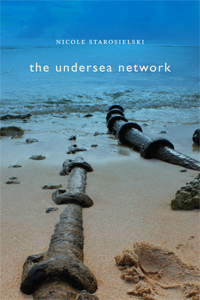
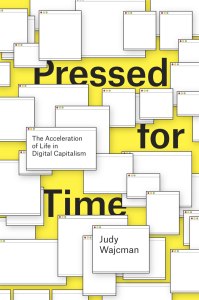
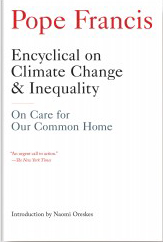
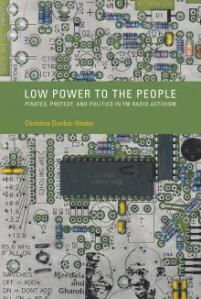
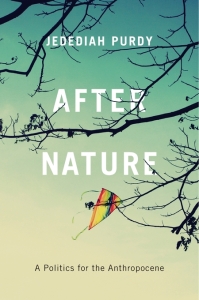
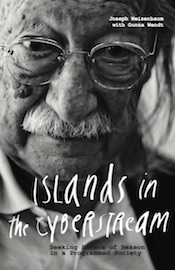

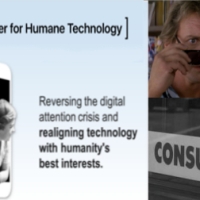






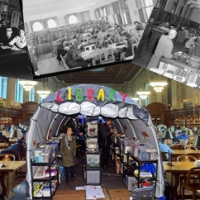
Excellent list–I’m very interested in the Wiexenbaum book, which I had not heard of (so thank!). BTW, the Washington POst recently had an article on “The Resistnce” to technology which is worth the read: http://www.washingtonpost.com/sf/national/2015/12/26/resistance/
Interestingly, two dys later there was another article in WaPo on Google and it’s use of student data: https://www.washingtonpost.com/news/the-switch/wp/2015/12/28/google-is-tracking-students-as-it-sells-more-products-to-schools-privacy-advocates-warn/
Great post. My Amazon wish list is now a lot longer.
I will have to check out a few of those (Islands in the Cyberstream,and Low Power to the People in particular), thanks for the list.
Pingback: My Reading List for 2015 | Alchemical Thoughts
Pingback: Broadcasting Resistance – a review of Low Power to the People by Christina Dunbar-Hester | LibrarianShipwreck
Pingback: AI and Drones and Bio-engineering, oh my! – A Review of A Dangerous Master by Wendell Wallach | LibrarianShipwreck
Pingback: My Favorite Books from 2016 | LibrarianShipwreck
Pingback: My Favorite Books from 2017 | LibrarianShipwreck
Reblogged this on Quaerere Propter Vērum.
Pingback: My Favorite Books from 2018 | LibrarianShipwreck
Pingback: My Favorite Books from 2019 | LibrarianShipwreck
Pingback: My Favorite Books from 2020 | LibrarianShipwreck
Pingback: My Favorite Books from 2021 | LibrarianShipwreck